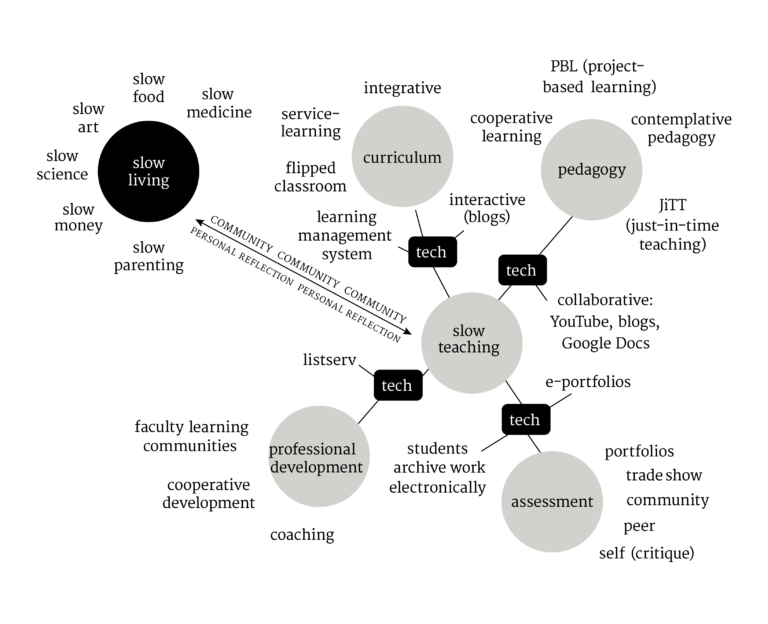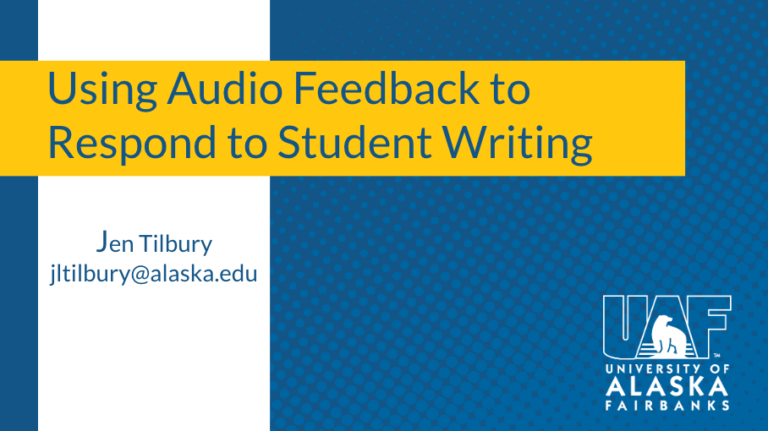Alternatives to the proctored exam
Every once in a while, members of UAF’s instructional design team get course development questions that really give cause to stop and think. As is often the case it can be challenging to give a fully descriptive answer to what is seemingly a simple question. Let’s consider, “Are there alternatives to the proctored exam?”
Simply said: Yes. The nuanced part comes into play when we consider the range of methods that can be employed when developing such an assessment.
The solid answer to this begins with another question: What are you trying to measure? After all, any exam, proctored or not, is just an assessment. It’s a measuring tool. Hopefully, it measures a student’s mastery of a skill or knowledge against a stated learning objective. As is often the case though, an exam won’t exactly measure the stated learning objective. As Grant Wiggins points out in his “Case for Authentic Assessment” (1), a written driver’s exam will not adequately measure a student’s ability to safely operate a vehicle on public roads.
That’s not to say that a proctored exam can’t be a good measuring tool, but it’s essential to be mindful of the limitations of any assessment.
So what exactly are you hoping the student will be competent at? Should the students be able to identify, define, create or critique something? (Please feel free to add as many Bloom’s Learning objectives as you’d like).
If one were to categorize a proctored exam, they might include characteristics of open/closed book, duration and even question types. But these choices all lead to an assessment environment where students are monitored for fear of cheating. Maybe it’s time to rephrase our original question: Is there a way to hold students accountable for what should be original work in an assessment without the use of a proctored exam?
We need only look to disciplines that use student portfolios, performances, or staged developments of work over the semester (or degree program) to assess learning mastery and get our answer.
STEM faculty will often cite the need for students to demonstrate an ability to solve a problem and tend towards a proctored exam because prior knowledge of the problem would trivialize the testing process. That’s understandable. But how about asking students to identify a class of problems that center on their area of interest? A student-generated question (and solution) centered on their passions will be unique to that student. That’s something that can’t be encoded on a hidden cheat sheet. You can round out the assessment with a presentation from the student and interaction with you and your peers.
Also, the good news is: If you really do decide to assess your students with proctored exams, then CTL is already set up to assist you. We have a top-notch exam center in our UAF office and have established procedures to provide proctored exams to students outside of the Fairbanks area. Get in touch with us, we can discuss options.
Reference
(1) Wiggins, G. (1990). The Case for Authentic Assessment. ERIC Digest. https://files.eric.ed.gov/fulltext/ED328611.pdf




